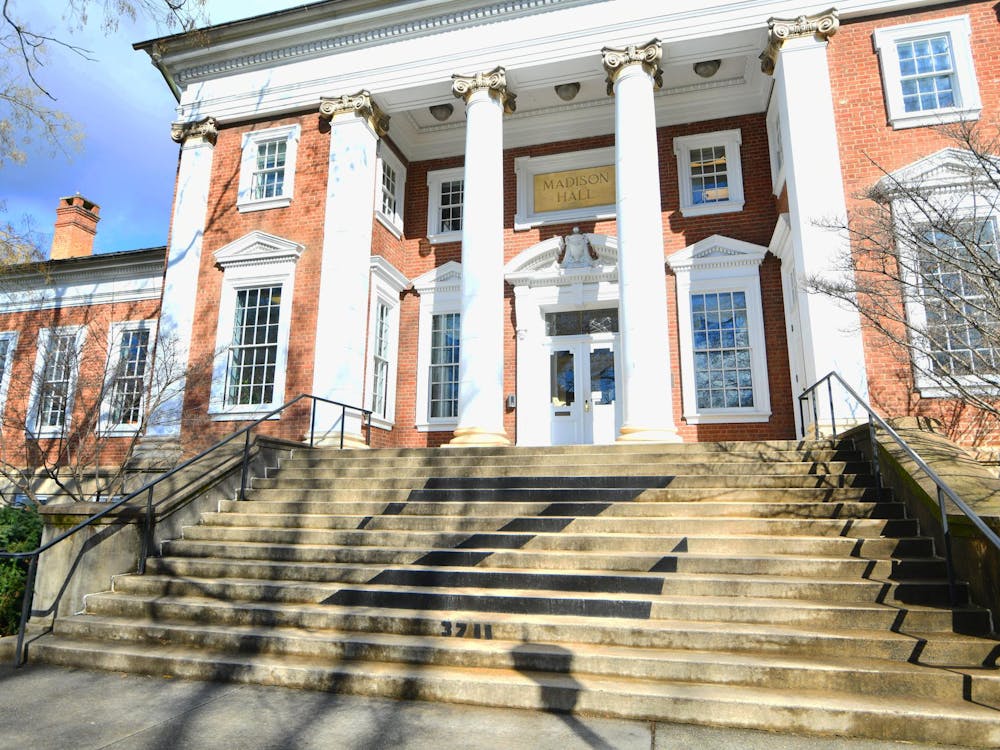Student groups’ efforts to promote “awareness” and “start the conversation” of the discriminatory treatment of minorities by law enforcement and the courts, while well-intended, distract from more effective forms of advocacy. The rampant use of buzzwords like “awareness,” “paradigms” and “dialogue” has saturated the already limited space for meaningful action pertaining to criminal justice reform.
If we want something to change we need more than social media activism; we should pursue paths of action that will directly impact our governing institutions. In short, emailing, writing and calling state and federal legislators to advocate on behalf of concrete policy proposals is a far more direct, substantial and powerful way to enact real change. There are four realistic policy proposals that, if campaigned for and implemented into law, would achieve far more than nebulous dialogues.
The first, and most ambitious, would be to usher in a bipartisan criminal justice reform package through Congress like the REDEEM Act introduced by Senators Rand Paul, R-KY, and Cory Booker, D-NJ. Such a reform would help young people and others who have served sentences for nonviolent crimes escape what Paul described as “a cycle of poverty and incarceration.” Taxpayer funds would be channeled toward rehabilitation efforts that would help young people and minorities, who are disproportionately affected by astronomically high incarceration rates for nonviolent drug offenses, avoid the revolving door of the prison-industrial complex. The United States’ incarceration rate is the highest in the world: while it represents 4.4 percent of the world’s population, it is home to 22 percent of the world’s prisoners. This type of bipartisan reform would go a long way in both reigning in taxpayer dollars and breaking the vicious cycle of poverty, crime and incarceration.
Mandating that police officers wear body cameras would yield instant results for all citizens, particularly among minority groups that are disproportionately victims of excessive force. In the first year of such an initiative in Rialto, California, complaints filed against police officers fell by 88 percent while the use of force dropped by almost 60 percent. William A. Farrar, the Rialto police chief, succinctly explained the efficacy and manifold benefits of police cameras when he said, “When you put a camera on a police officer, they tend to behave a little better, follow the rules a little better… if a citizen knows the officer is wearing a camera, chances are the citizen will behave a little better.”
According to the National Law Enforcement and Corrections Technology Center, the Department of Defense’s 1033 program "permits the Secretary of Defense to transfer, without charge, excess U.S. Department of Defense (DoD) personal property (supplies and equipment) to state and local law enforcement agencies (LEAs)." Ending this program would be a huge step toward repairing the relationship between communities and their law enforcement agencies. This program, more than any other, has facilitated the rapid militarization of the police. Seeing police with grenade launchers and military armored tactical vehicles roaming the streets of Ferguson has hardened the widespread perception that the police are invasive forces bent on suppressing nonviolent civil dissent. Reversing the process of the militarization of the police would allow for trusted and revered police officers to work side-by-side with local communities to ensure freedom and security for all.
A fourth solution would address police immunity in the court system. 68 percent of felony defendants, from the general population in 2006, were convicted while 48 percent were incarcerated; in 2009-10, just 33 percent of law enforcement officials accused of misconduct were convicted and a mere 12 percent were incarcerated. Greater civilian oversight of the judicial process tracking law enforcement misconduct accusations from submission to conviction and incarceration would ensure that police do not remain insulated from the law we’ve entrusted them to enforce.
At a time when over-incarceration hemorrhages the public coffers, hampers the possibility of the American dream for millions of young Americans and leads to young black males being 21 times more likely than their white peers to be killed by police, we need to focus all our attention on advocating on behalf of specific policy solutions rather than kicking the can down the road with impotent calls for “awareness.” The Civil Rights Movement would never have culminated in the Civil Rights Act and the Voting Rights Act if its leaders like Dr. Martin Luther King, Jr. did not focus their efforts on making inroads with legislators. Similarly, if we espouse the need for cultural change and raising awareness in lieu of pointing to specific policy solutions, we may lose the momentum we need to stop more Americans from falling victim to police brutality and the revolving door of the prison-industrial complex. Though I am continually dismayed by the injustices of the criminal justice system, I have hope advocacy for such solutions could confirm the poignancy and truth of Dr. King’s declaration that “the arc of the moral universe is long, but it bends toward justice.”
Ben Rudgley is a Viewpoint writer.






